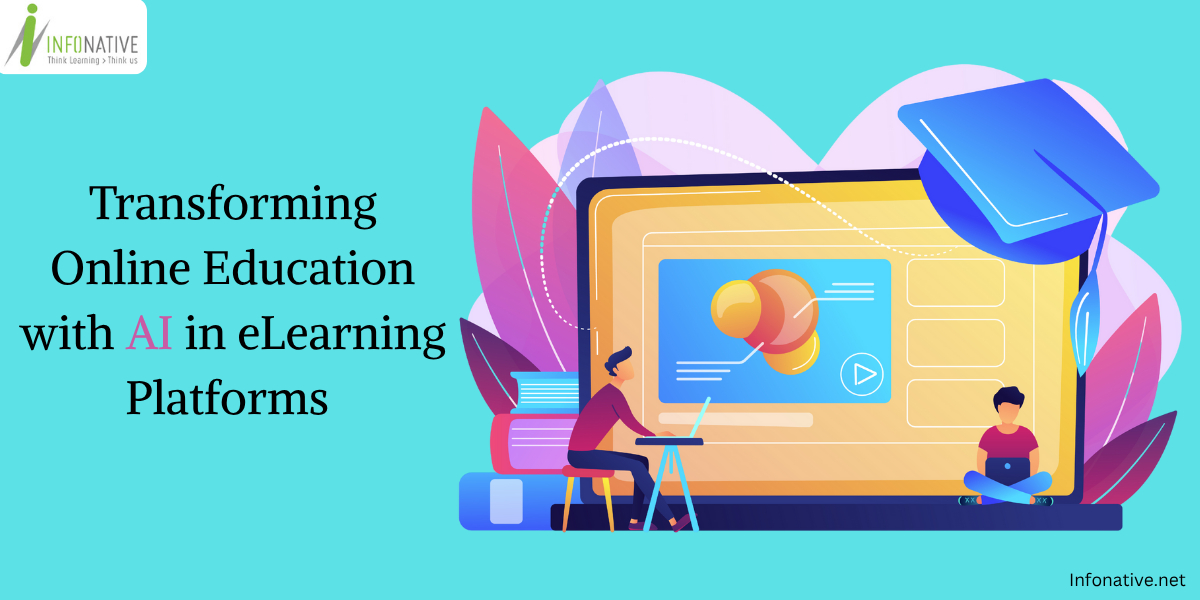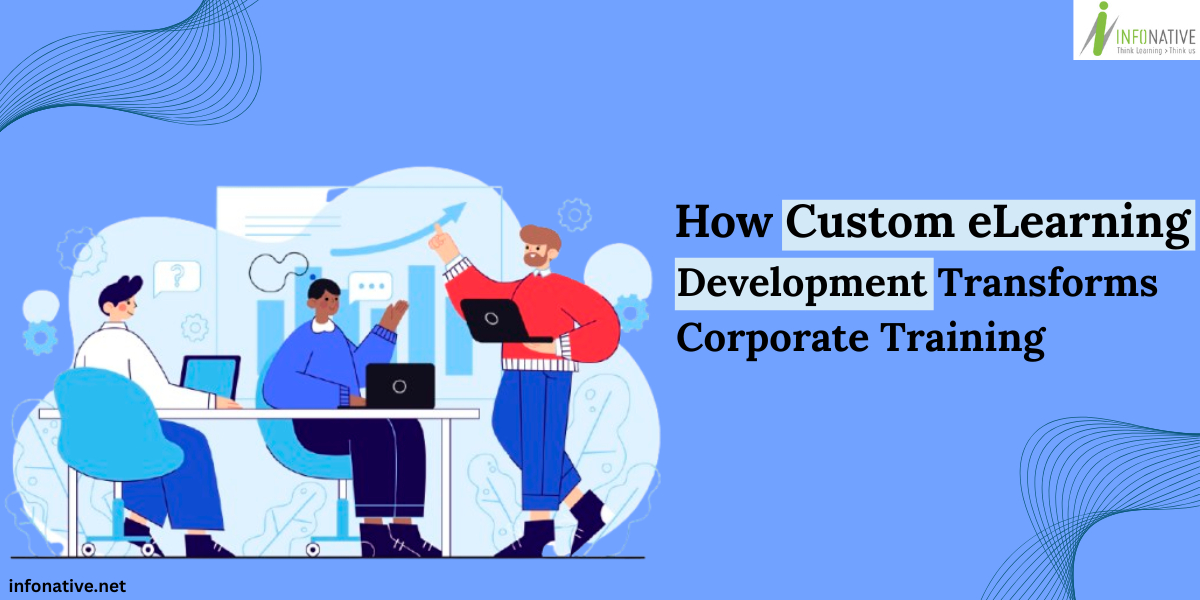Artificial Intelligence (AI) is no longer just a buzzword in tech; it's a game-changer in the world of digital education. With the rise of online learning platforms, AI is powering adaptive learning paths, automating routine tasks, and making education more accessible, personalized, and data-driven.
From machine learning algorithms predicting student success to AI tutors offering 24/7 support, we are witnessing a digital revolution that is transforming the education landscape globally.
Why AI Matters in Today’s Digital Education Landscape
Rapid Digital Adoption in Education
Post-2020, institutions worldwide had to swiftly transition from classroom to cloud. This shift catalysed the need for intelligent systems that can scale personalized education for thousands at once, enter AI.
Addressing Learning Gaps Through Smart Technology
AI helps bridge learning gaps by identifying areas where students struggle and automatically adapting the content to better suit their learning style. No two students learn the same way, and AI recognises that.
Core AI Technologies Empowering eLearning Platforms
Machine Learning (ML) and Deep Learning
AI models detect learning behaviours, forecast progress, and deliver customized resources using historical data to enhance individual educational experiences.
Natural Language Processing (NLP)
NLP helps eLearning systems interpret and reply to human language, powering intelligent assistants, real-time support, and smarter content organization.
Predictive Analytics
Predictive tools analyse trends to foresee academic outcomes, spot at-risk students, and boost engagement through early, data-driven interventions.
Key Benefits of AI in Online Education
Customized Learning Experiences
AI evaluates individual learner data to deliver personalized study plans that align with their strengths, challenges, and interests for better outcomes.
Smart Virtual Tutors
AI-powered tutors simulate real-time teaching by offering guidance, feedback, and explanations—available 24/7 without replacing human educators.
Streamlined Administrative Work
AI handles repetitive tasks like registration, grading, and reporting, allowing teachers to invest more time in engaging with students and enhancing instruction.
Increased Student Engagement
AI introduces game elements, adaptive tests, and interactive lessons that keep learners motivated, involved, and eager to progress at their own pace.
How AI Improves Accessibility in Online Education
Instant Translations and Captions
AI-powered translators embedded in eLearning platforms help eliminate language gaps, making educational content understandable for diverse learners worldwide, instantly and effortlessly.
Customized Learning for Diverse Needs
AI adapts lessons for learners with disabilities—visual, hearing, or cognitive—by adjusting formats and interactions, promoting inclusive and barrier-free digital education.
Automated Test Scoring
AI handles grading tasks in real-time, minimizing manual work for educators while giving students immediate performance results and actionable feedback.
Performance Prediction and Insights
AI evaluates student patterns to forecast learning outcomes and suggest personalized improvements, ensuring better academic planning and timely instructional support.
Enhancing Content Creation Using AI Tools
AI-Powered Content Generation
Tools like ChatGPT, Jasper, and Synthesia help in creating written, audio, and video content at scale.
Dynamic Multimedia Integration
AI recommends and integrates images, animations, or charts based on textual context, enriching the content.
Integrating Chatbots for 24/7 Learner Support
Chatbots answer student queries instantly, guide course navigation, and provide learning tips — all without human intervention. This always-on support increases learner satisfaction and retention.
Security and Data Privacy in AI-Based eLearning
Ethical Use of Student Data
AI technologies are required to comply with privacy regulations such as GDPR and FERPA. Using data with user consent is essential for building and preserving trust.
Bias Mitigation in Algorithms
Developers must ensure that AI tools don’t propagate racial, gender, or socio-economic biases in content delivery or assessments.
Case Studies: AI-Driven Success Stories in Education
Duolingo
Duolingo leverages AI to adjust lesson difficulty based on user performance, ensuring personalized language learning paths with effective repetition for stronger retention and long-term engagement.
Carnegie Learning
Carnegie Learning developed an AI-driven math tutor that adapts to student responses, achieving significantly better academic outcomes compared to conventional classroom teaching approaches in pilot studies.
Khan Academy
Khan Academy utilizes GPT-powered virtual tutors to provide learners with real-time guidance, personalized feedback, and interactive assistance tailored to individual progress and comprehension levels.
Challenges and Limitations of AI in eLearning
Data Dependency:
AI systems rely heavily on large datasets for accuracy and personalization. This dependence raises concerns around data privacy, storage, and the risk of breaches without strong security protocols.
Lack of Human Touch:
While AI enhances learning efficiency, it cannot replicate emotional intelligence, empathy, or motivational guidance that human instructors provide, especially important in courses requiring personal support or soft skills development.
Bias in Algorithms:
AI can unintentionally mirror biases from training data, resulting in unfair treatment or exclusion. Without careful design and testing, it may reinforce existing inequalities in educational opportunities and outcomes.
Future Trends: What’s Next for AI in Online Education
Emotional AI (Affective Computing)
AI will soon recognize learners’ emotions through facial expressions and tone, enabling content to adapt dynamically based on mood and engagement levels for better learning outcomes.
Voice-enabled Learning
Online education platforms will increasingly use voice technology, allowing learners to navigate, ask questions, and interact with content using simple voice commands for a hands-free experience.
AI + Blockchain
Combining AI with blockchain will create tamper-proof digital credentials, ensuring secure, verifiable academic records and safeguarding learner achievements across decentralized learning platforms.
Conclusion
AI isn’t just the future of online education; it’s already shaping the present. From customizing content to improving access and automating tasks, AI is reshaping how we teach and learn. While there are limitations, the potential benefits of AI in eLearning are enormous, especially when applied thoughtfully and ethically. For learners and educators alike, embracing AI means opening the door to a smarter, more inclusive digital education era.




